
Chinteche: The Hidden Gem of Malawi's Lakeshore
Chinteche is a serene town located on the northern shores of Lake Malawi. Known for its pristine beaches and crystal-clear waters, it offers a tranquil escape from the hustle and bustle of city life. The town is an ideal destination for those looking to relax by the water, engage in water sports, or explore the natural beauty of the area. One of the main attractions in Chinteche is its long, sandy beaches. These beaches are often deserted, allowing you to enjoy the stunning views and the sound of the waves in peace. The water here is perfect for swimming, snorkeling, and kayaking. For those interested in fishing, Lake Malawi is home to a variety of fish species, including the famous cichlids. Chinteche is also rich in cultural experiences. The local communities are known for their warm hospitality and vibrant traditions. Visitors can explore nearby villages, meet local artisans, and even participate in traditional dances. The town is a great base for day trips to nearby attractions such as the Vwaza Marsh Wildlife Reserve and the Nyika National Park. Accommodation in Chinteche ranges from luxurious lakeside lodges to budget-friendly guesthouses. Many of these places offer stunning views of the lake and easy access to the beaches. The local cuisine is a delightful mix of fresh fish, tropical fruits, and traditional Malawian dishes. Whether you are looking for relaxation, adventure, or cultural immersion, Chinteche has something for everyone.
Local tips in Chinteche
- Visit during the dry season (May to October) for the best weather and clearer waters.
- Bring your snorkeling gear to explore the underwater world of Lake Malawi.
- Try the local cuisine, especially the fresh fish dishes.
- Respect local customs and traditions when visiting villages.
- Book accommodation in advance, especially during peak tourist seasons.
Chinteche: The Hidden Gem of Malawi's Lakeshore
Chinteche is a serene town located on the northern shores of Lake Malawi. Known for its pristine beaches and crystal-clear waters, it offers a tranquil escape from the hustle and bustle of city life. The town is an ideal destination for those looking to relax by the water, engage in water sports, or explore the natural beauty of the area. One of the main attractions in Chinteche is its long, sandy beaches. These beaches are often deserted, allowing you to enjoy the stunning views and the sound of the waves in peace. The water here is perfect for swimming, snorkeling, and kayaking. For those interested in fishing, Lake Malawi is home to a variety of fish species, including the famous cichlids. Chinteche is also rich in cultural experiences. The local communities are known for their warm hospitality and vibrant traditions. Visitors can explore nearby villages, meet local artisans, and even participate in traditional dances. The town is a great base for day trips to nearby attractions such as the Vwaza Marsh Wildlife Reserve and the Nyika National Park. Accommodation in Chinteche ranges from luxurious lakeside lodges to budget-friendly guesthouses. Many of these places offer stunning views of the lake and easy access to the beaches. The local cuisine is a delightful mix of fresh fish, tropical fruits, and traditional Malawian dishes. Whether you are looking for relaxation, adventure, or cultural immersion, Chinteche has something for everyone.
When is the best time to go to Chinteche?
Iconic landmarks you can’t miss
Mayoka Village Lodge
Mayoka Village Lodge: Your serene escape on the shores of Lake Malawi, blending relaxation and adventure in a tropical paradise.

Lake Malawi National Park
Explore the stunning landscapes and vibrant wildlife of Lake Malawi National Park, a UNESCO World Heritage Site ideal for nature lovers and adventure seekers.
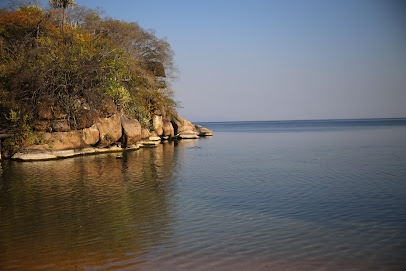
Kande Beach Resort
Experience the allure of Kande Beach Resort, a serene getaway on the shores of Lake Malawi, perfect for relaxation and adventure.

Butterfly Space Non Profit Eco Lodge
Experience the beauty of Malawi at Butterfly Space Non Profit Eco Lodge, a community-driven eco-lodge in Nkhata Bay offering adventure, culture, and relaxation.
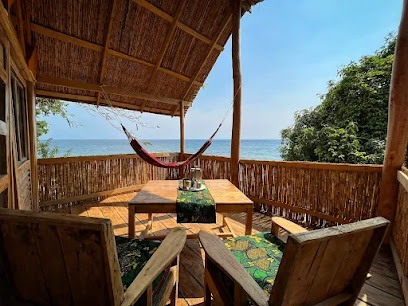
Umunthu Space & Lodge
Experience the warmth of Malawian hospitality at Umunthu Space & Lodge, a serene retreat in Mzuzu offering comfort, dining, and local culture.
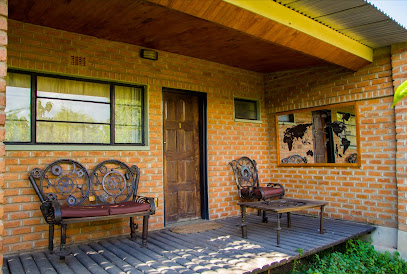
Makuzi Beach Lodge
Experience the beauty of Lake Malawi at Makuzi Beach Lodge, a serene resort hotel offering relaxation and adventure amidst stunning landscapes.
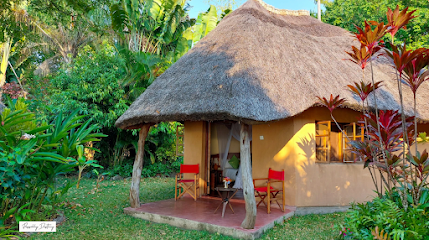
Njaya Lodge
Experience the tranquility of Njaya Lodge on Chikale Beach, offering breathtaking views of Lake Malawi and a serene retreat for every traveler.
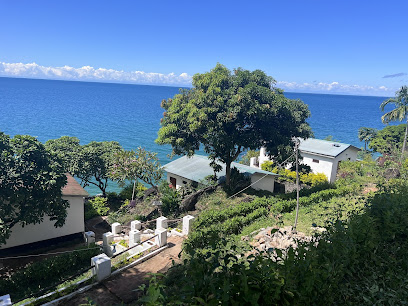
Chintheche INN
Experience the tranquil beauty of Lake Malawi at Chintheche Inn, your serene getaway with stunning views, comfortable accommodations, and rich local culture.

Mango Drift
Discover serenity at Mango Drift on Likoma Island, where natural beauty meets warm hospitality in a breathtaking lodge setting.
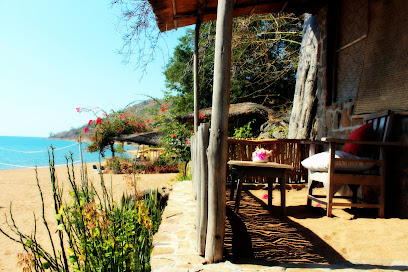
Liwonde National Park Main Entrance Gate
Explore the breathtaking Liwonde National Park, a wildlife haven in Malawi, where adventure and natural beauty await at every turn.
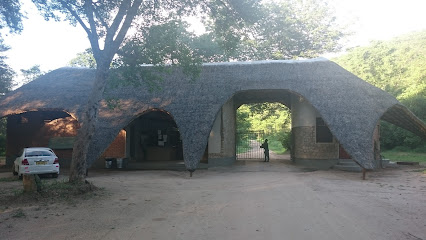
Kande Beach
Discover the stunning Kande Beach on Lake Malawi, a perfect blend of relaxation, adventure, and vibrant local culture.
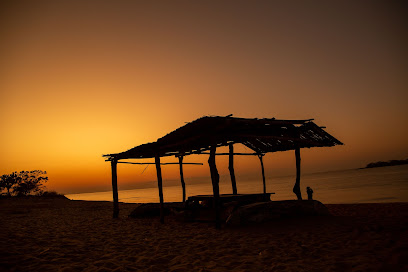
Kachere Kastle
Experience the enchanting beauty of Lake Malawi at Kachere Kastle, a serene lakeside hotel perfect for relaxation and adventure.

Karonga Museum
Explore the rich cultural heritage and ancient fossils at Karonga Museum, a premier destination in Malawi for history enthusiasts and curious travelers alike.
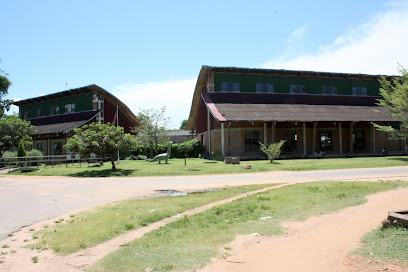
Kaya Mawa by Green Safaris
Discover the enchanting Kaya Mawa on Likoma Island for an unforgettable blend of luxury, nature, and local culture in Malawi’s pristine paradise.
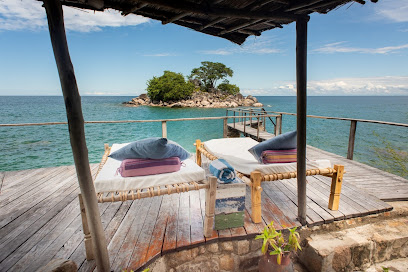
Vwaza Marsh Wildlife Reserve
Explore Vwaza Marsh Wildlife Reserve, Malawi's hidden wildlife haven, teeming with elephants, hippos, and vibrant birdlife in stunning natural settings.
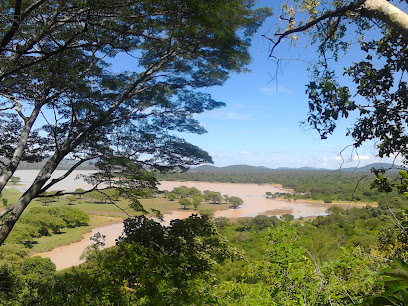
Unmissable attractions to see
Elephant Rock
Explore the breathtaking natural beauty of Elephant Rock, a stunning tourist attraction in Malawi, famous for its unique rock formations and serene landscapes.

Chikale beach
Discover the serenity of Chikale Beach, a beautiful coastal retreat in Mzuzu, Malawi, perfect for relaxation and adventure by the pristine waters of Lake Malawi.
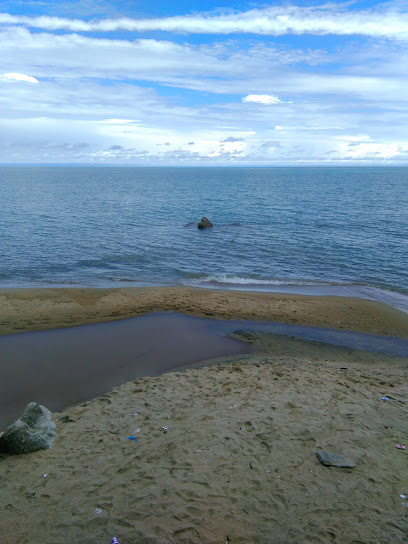
Vizara Rubber Plantation
Explore Vizara Rubber Plantation in Nkhata Bay for an immersive experience in rubber production amidst stunning natural beauty.
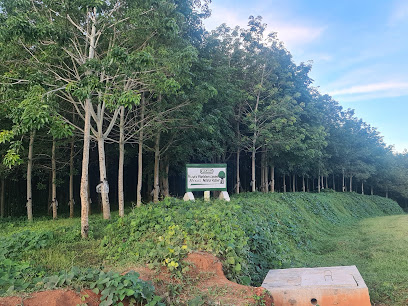
Mzuzu Dam
Experience the serene beauty of Mzuzu Dam, a perfect retreat for nature lovers and adventure seekers in Malawi.
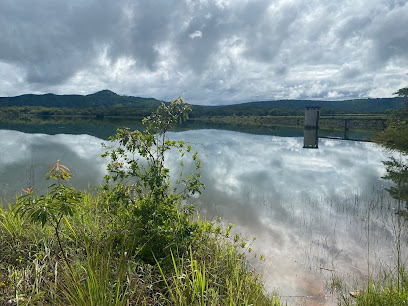
Kawiya River
Explore the tranquil beauty of Kawiya River in Chintheche, Malawi, where nature and adventure intertwine for an unforgettable experience.
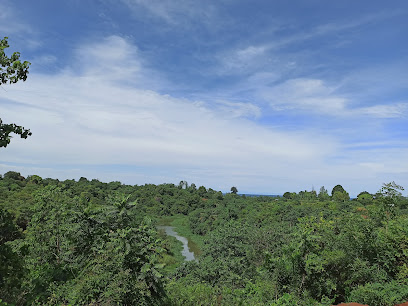
Kamwala
Explore Kamwala, a vibrant tourist attraction in Malawi, where culture, community, and natural beauty come together for an unforgettable experience.
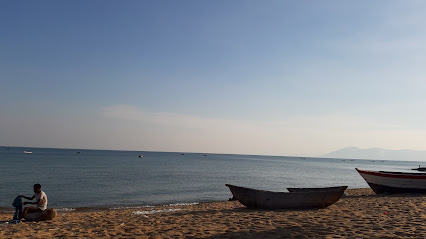
Ndunda beach
Experience the serene beauty of Ndunda Beach in Likoma, Malawi, where turquoise waters meet soft sands for the ultimate getaway.
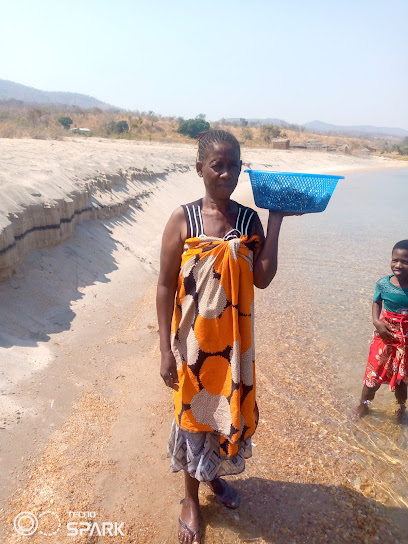
Dwambazi Waterfalls
Explore the breathtaking Dwambazi Waterfalls in Kamphambale, a serene escape into nature's beauty, perfect for relaxation and memorable photography.
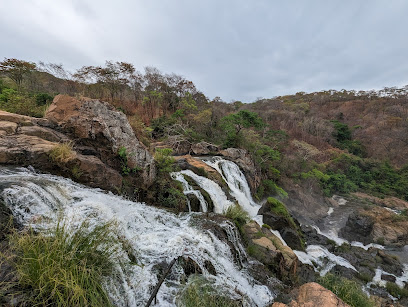
Beautiful Baobab
Explore the majestic Baobab trees of Likoma Island, a stunning natural wonder that offers serene beauty and rich biodiversity.
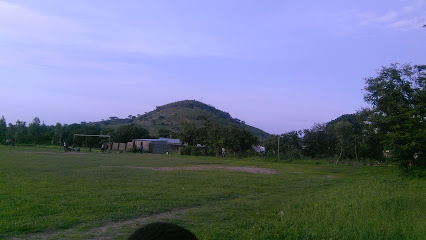
Cachere Baobab
Experience the breathtaking beauty of Cachere Baobab on Likoma Island, a hidden gem in Malawi known for its majestic baobab trees and tranquil atmosphere.

Kalunguru Mountain
Explore the breathtaking vistas and rich biodiversity of Kalunguru Mountain, a hidden gem in Loudon that promises adventure and tranquility.
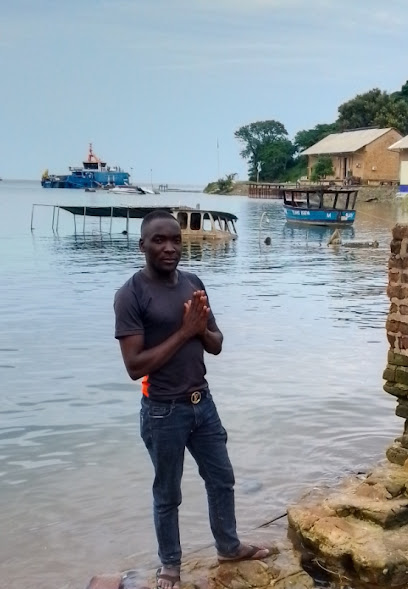
Cherry Blossom Garden
Discover tranquility in the stunning Cherry Blossom Garden, an enchanting floral sanctuary in Majiga, Nkhata Bay, perfect for relaxation and nature lovers.

Kasitu Beach
Experience the unspoiled beauty and tranquility of Kasitu Beach in Chiluvya, Malawi, a perfect destination for relaxation and adventure.
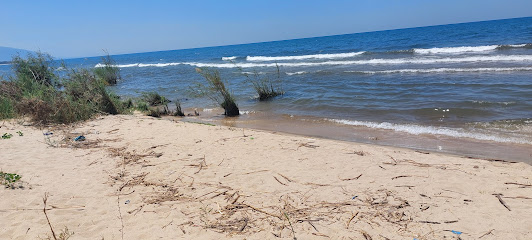
bana beach
Discover the serene beauty of Bana Beach, a coastal paradise in Malawi perfect for relaxation, adventure, and unforgettable memories.

Chisindi river
Discover the tranquil beauty of Chisindi River, a serene park in Nkhata Bay where nature and relaxation come together in perfect harmony.

Essential places to dine
Butterfly Space Non Profit Eco Lodge
Discover tranquility and adventure at Butterfly Space Non Profit Eco Lodge by Lake Malawi - an eco-friendly retreat fostering community connection.
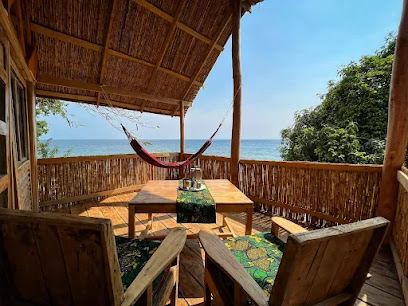
Umunthu Space & Lodge
Discover the vibrant flavors of Malawi at Umunthu Space & Lodge in Mzuzu - where culinary delights meet cultural experiences.
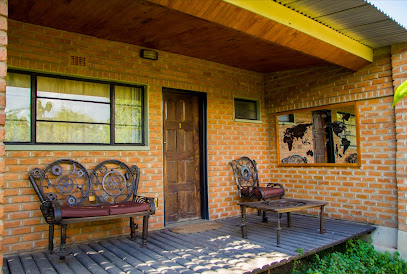
Macondo Camp
Experience authentic Italian cuisine and family-friendly lodging at Macondo Camp – your perfect getaway in Mzuzu, Malawi.
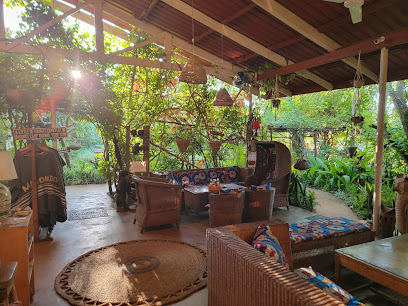
A1
Experience the vibrant flavors of India at A1 in Mzuzu - where every meal is a celebration of spices and tradition.
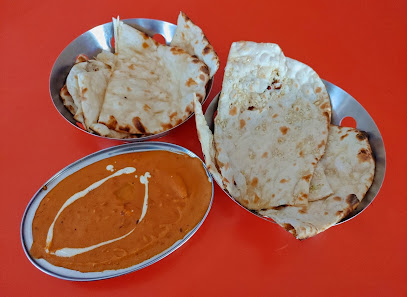
One Love
Discover delectable cuisine at One Love in Nkhata Bay, where local flavors meet international flair amidst stunning waterfront views.
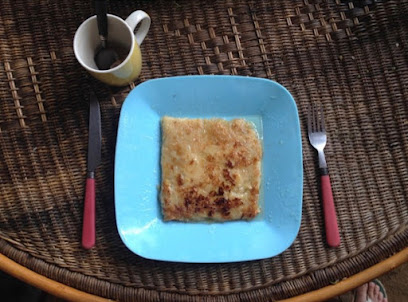
Kips Express
Discover Kips Express in Mzuzu: A delightful restaurant serving an array of local and international cuisines in a warm and welcoming atmosphere.
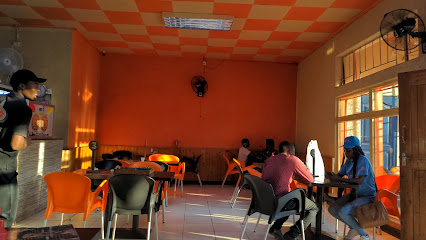
Crestview Guest House Restaurant and Take Away
Discover authentic Malawian flavors at Crestview Guest House Restaurant and Take Away in scenic Nkhata Bay - a perfect dining experience awaits.
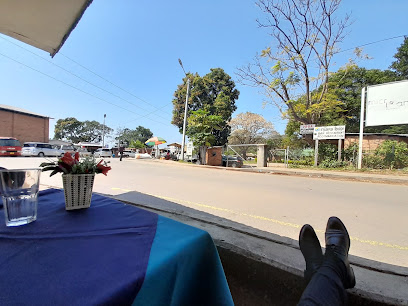
Manjolo Village
Discover Manjolo Village - A cultural gem near Mzuzu featuring delightful restaurants, bars, and coffee shops that celebrate local flavors.
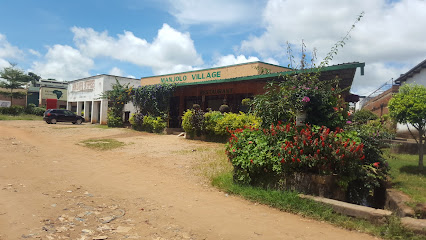
Kwithu Kitchen Cafè
Discover the flavors of Malawi at Kwithu Kitchen Café in Mzuzu - where local ingredients meet international cuisine in a cozy atmosphere.
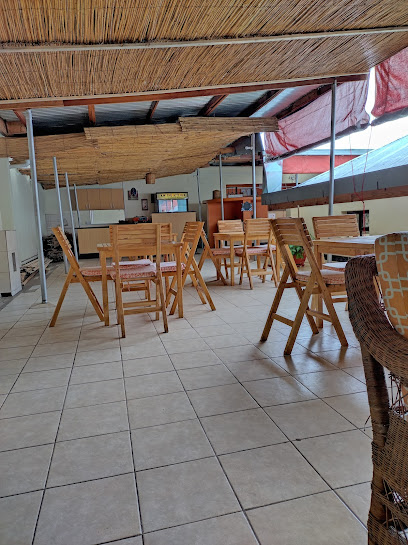
Midland fast food
Savor delectable fast food at Midland Fast Food in Mzuzu - where quick meals meet local flavor.
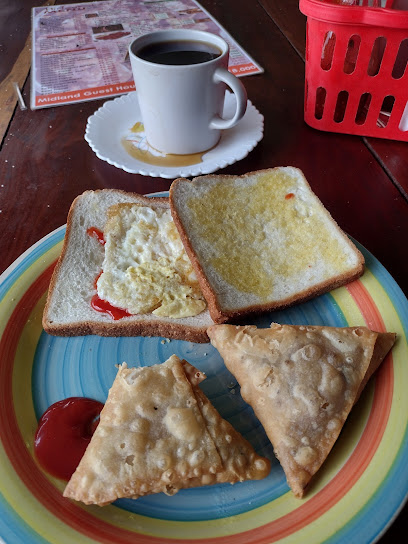
Lake View Lodge & Plant Nursery
Discover tranquility at Lake View Lodge & Plant Nursery - where delicious meals meet lush greenery in Mzuzu.
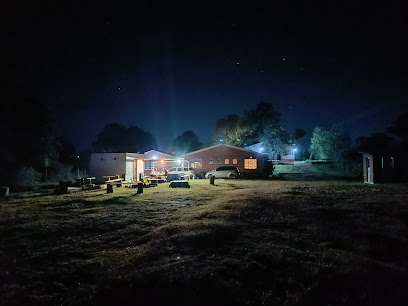
Soul Kitchen
Discover authentic Malawian flavors at Soul Kitchen in Mzuzu - home of mouth-watering BBQ chicken and traditional dishes.
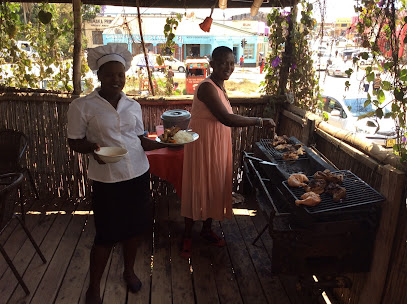
Club Love MW
Experience the vibrant flavors and lively atmosphere at Club Love MW in Mzuzu—your go-to grill and bar destination.
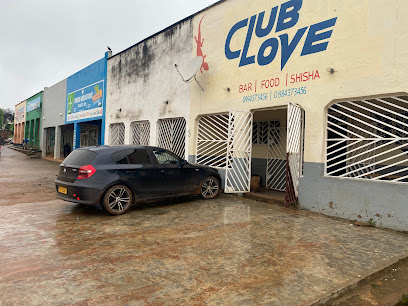
GreenVee
Discover authentic Malawian cuisine at GreenVee in Mzuzu - where local flavors meet warm hospitality.

Aunt Luse Restaurant
Experience authentic Malawian cuisine at Aunt Luse Restaurant in Nkhata Bay - where local flavors meet warm hospitality.
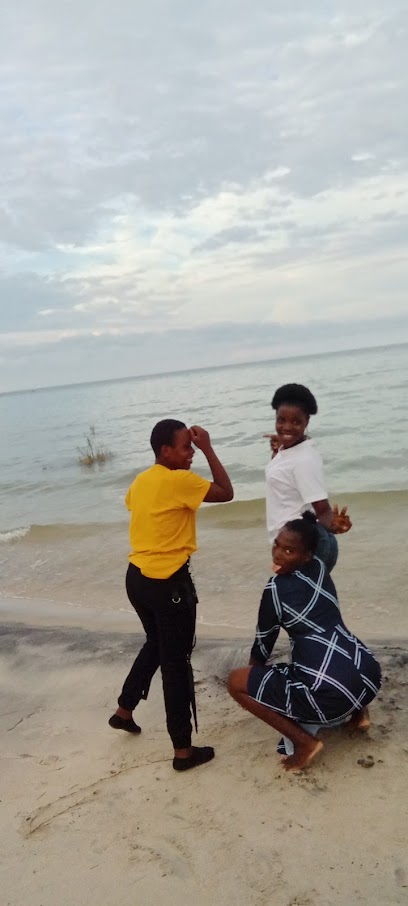
Markets, malls and hidden boutiques
Beaura's Dress Maker and Tailor
Experience personalized fashion and exceptional tailoring at Beaura's Dress Maker and Tailor in Nkhata Bay, where every piece is crafted with care.
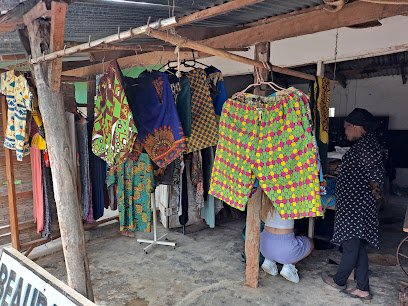
Tukombo Trading Centre
Experience the heart of Malawi at Tukombo Trading Centre, where local culture, crafts, and community come together in a vibrant shopping atmosphere.

Mzenga Trading Centre
Discover local craftsmanship and vibrant goods at Mzenga Trading Centre in Nkhata Bay, a must-visit for an authentic shopping experience.

Chintheche Superette
Explore Chintheche Superette for a blend of local culture and essential shopping in the heart of Malawi.
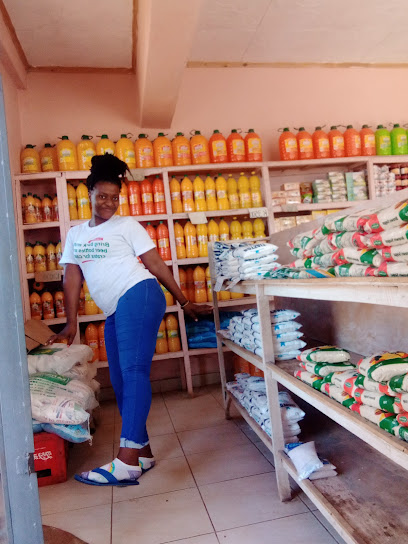
Duwa welding shop
Discover the artistry of fabrication engineering at Duwa Welding Shop in Chintheche, where skilled craftsmen transform metal into masterpieces.

Vika's Art Gallery
Explore a vibrant collection of local crafts and artworks at Vika's Art Gallery in Nkhata Bay, a true reflection of Malawi's rich artistic heritage.

Mobile Phone Solutions
Discover Mobile Phone Solutions in Chintheche - your destination for the latest electronics and mobile accessories while traveling.
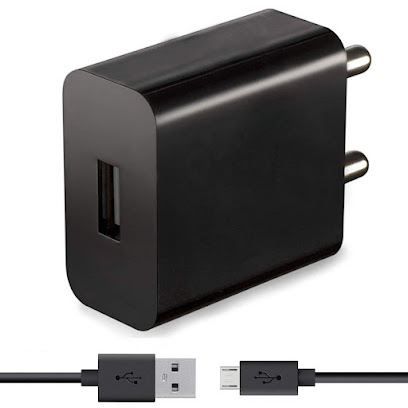
Chintheche Chipiku Stores
Experience the vibrant community spirit at Chintheche Chipiku Stores, your go-to destination for groceries and building materials in Malawi.
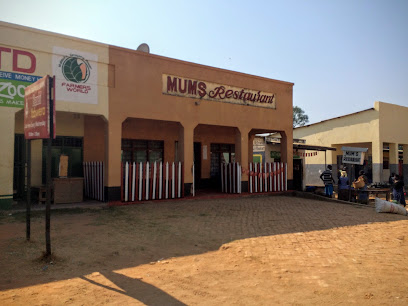
Handicraft shops
Explore Nkhata Bay's vibrant handicraft shops for authentic Malawian souvenirs that capture the spirit of local craftsmanship and culture.
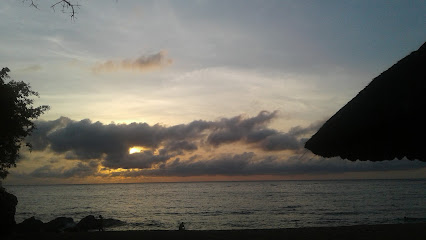
VBM
Explore the serene beauty of Chintheche, a lakeside village offering adventure, culture, and relaxation on the shores of Lake Malawi.

Mawaliwali Souvenir Shop
Explore Mawaliwali Souvenir Shop in Nkhata Bay for handcrafted Malawian treasures that embody the spirit of the land.

Chiwana Trading Centre
Explore the bustling Chiwana Trading Centre in Mlenga Senga, where vibrant culture meets local commerce and unforgettable experiences await.

Red Gold Green Art
Discover unique handmade crafts and immerse yourself in the vibrant culture of Malawi at Red Gold Green Art in Nkhata Bay.

Julleys Shop
Explore Julleys Shop in Chintheche for unique Malawian crafts and souvenirs that embody the rich culture and artistry of Malawi.

Carpentry and hardware shop
Explore Mzuzu's finest carpentry and hardware shop for all your DIY needs and local craftsmanship.
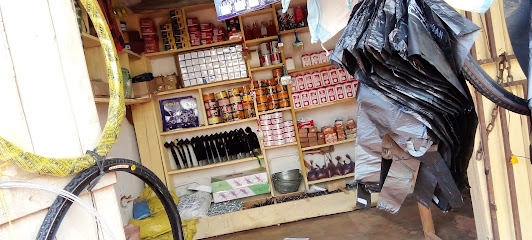
Essential bars & hidden hideouts
Queens Night Club
Discover the lively nightlife of Mzuzu at Queens Night Club, where music, dance, and a vibrant atmosphere await you.
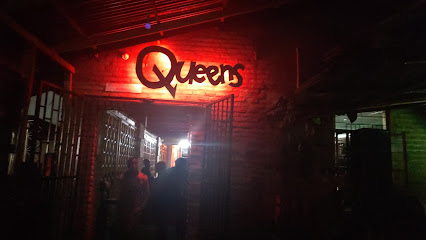
Ntchezgo Corner
Discover the essence of Mzuzu at Ntchezgo Corner, a vibrant bar offering refreshing drinks and a taste of local culture.
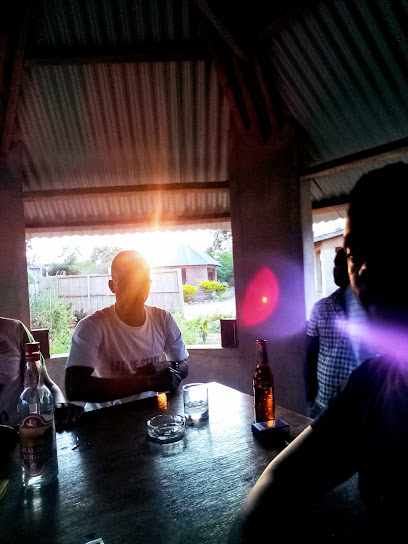
Kwidu LUXURY COTTAGE
Discover tranquil luxury at Kwidu Luxury Cottage in Chintheche, where stunning views and serene accommodations await your arrival.
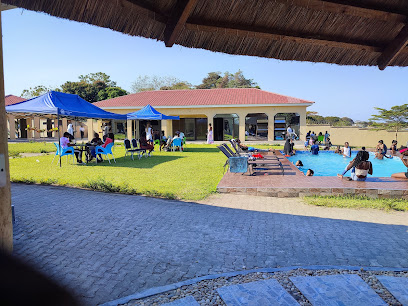
Bay View - Bar & Night Club
Experience vibrant nightlife and stunning views at Bay View - Bar & Night Club in Nkhata Bay.
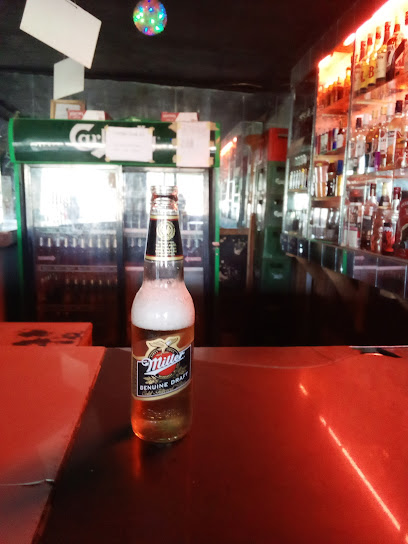
Mawala Bar and Lounge
Discover the vibrant Mawala Bar and Lounge in Nkhata Bay, where local flavors meet a lively atmosphere for an unforgettable experience.
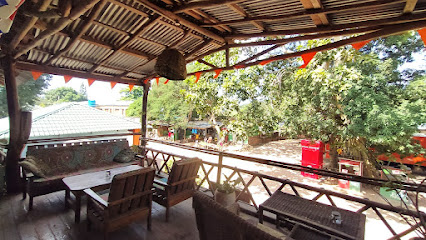
Nature's Lounge
Experience the rich flavors of Mzuzu at Nature's Lounge, a top grill destination amidst stunning natural beauty.
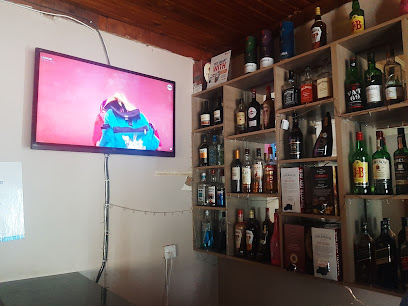
Sahara Leisures - Restaurant & Bar
Experience the vibrant flavors of Malawi at Sahara Leisures, Nkhata Bay's premier restaurant and bar, perfect for every traveler.
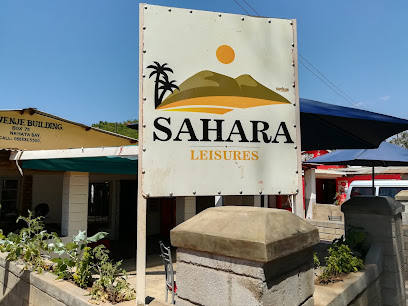
Chifundo's bar
Discover the charm of Chifundo's Bar in Nkhata Bay, where relaxation meets vibrant local culture, and unforgettable sunsets await.
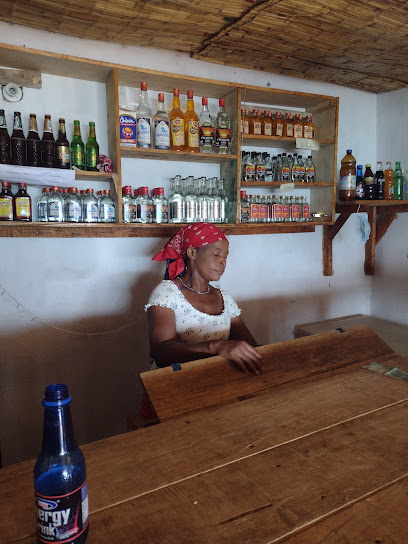
Castles Pub
Experience the vibrant atmosphere and local charm at Castles Pub, the perfect bar for tourists in Ekwendeni.
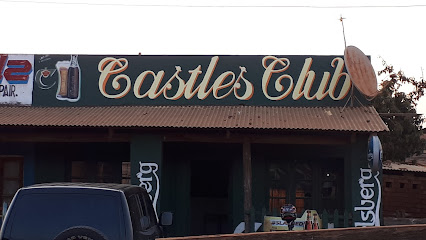
D&G bar
Experience the vibrant nightlife and local flavors at D&G Bar, the ultimate social hub in Mzuzu, Malawi.
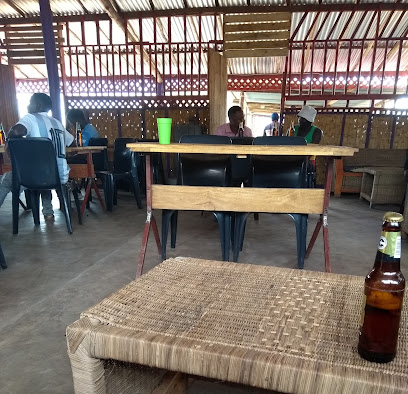
Tukombo Stop Over
Experience local culture at Tukombo Stop Over, a vibrant bar on M5 offering refreshing drinks and a lively atmosphere for all travelers.
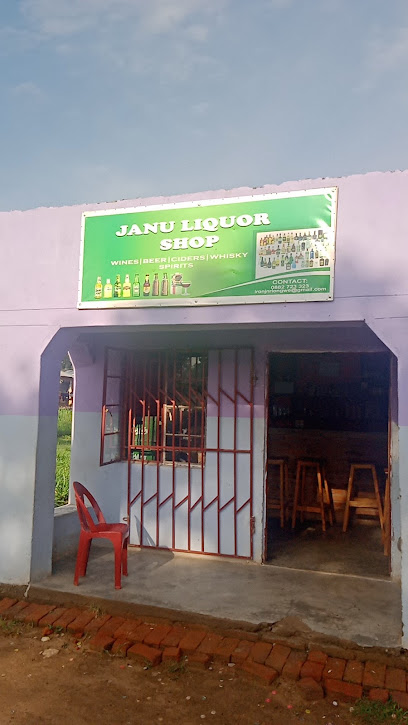
Chenda
Experience the vibrant nightlife of Mzuzu at Chenda, where local culture meets refreshing drinks in a lively atmosphere.
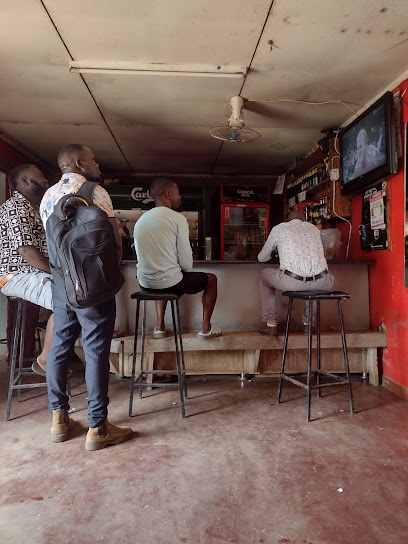
Baby Elephant Liquor
Experience the lively atmosphere and refreshing drinks at Baby Elephant Liquor, a vibrant bar in the heart of Nkhata Bay, Malawi.
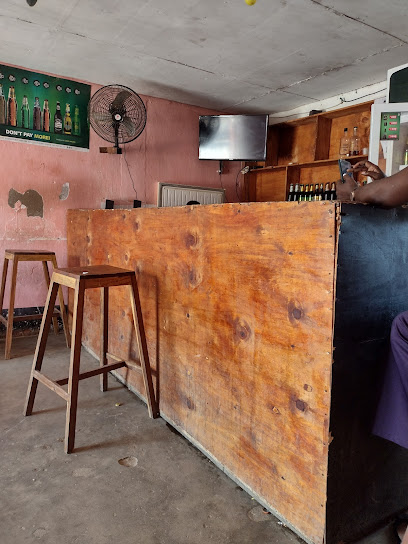
Aucha
Discover the vibrant nightlife of Mzuzu at Aucha, a charming bar offering local drinks and a warm atmosphere for an unforgettable evening.
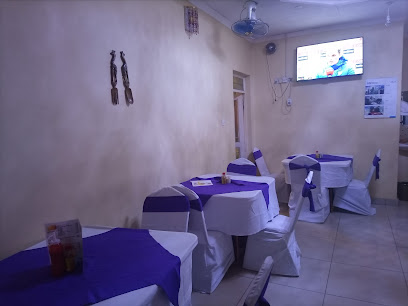
Local Phrases about Chinteche
-
- HelloMoni
[moh-nee] - GoodbyeTionana
[tee-oh-nah-nah] - YesEya
[eh-yah] - NoAyaya
[ah-yah-yah] - Please/You're welcomeChonde
[chohn-deh] - Thank youZikomo
[zee-koh-moh] - Excuse me/SorryPepani
[peh-pah-nee] - How are you?Muli bwanji?
[moo-lee bwan-jee] - Fine. And you?Ndili bwino. Inu?
[ndee-lee bwee-noh. ee-noo] - Do you speak English?Mukhulupilira chiyankhulo cha Chingerezi?
[moo-khoo-loo-pee-lee-rah chee-yahn-khoo-loh chah chin-geh-reh-zee] - I don't understandSindingathe kuchita bwino
[seen-deen-gah-theh koo-chee-tah bwee-noh]
- HelloMoni
-
- I'd like to see the menu, pleaseNdimafuna kuyembekeza menu, chonde
[ndee-mah-foo-nah koo-yehm-beh-keh-zah meh-noo chohndeh] - I don't eat meatSindidya nyama
[seen-dee-dyah nyah-mah] - Cheers!Timange!
[tee-mahn-geh] - I would like to pay, pleaseNdimafuna kulipira, chonde
[ndee-mah-foo-nah koo-lee-pee-rah chohndeh]
- I'd like to see the menu, pleaseNdimafuna kuyembekeza menu, chonde
-
- Help!Mphulupulu!
[m-poo-loo-poo-loo] - Go away!Pita!
[pee-tah] - Call the Police!Pemphani Police!
[pehm-pah-nee poh-lee-ceh] - Call a doctor!Pemphani dokotala!
[pehm-pah-nee doh-koh-tah-lah] - I'm lostNdimagwilira
[ndee-mah-gwee-lee-rah] - I'm illNdili wopanda cholakwika
[ndee-lee woh-pahn-dah choh-lah-kwee-kah]
- Help!Mphulupulu!
-
- I'd like to buy...Ndimafuna kugula...
[ndee-mah-foo-nah koo-goo-lah] - I'm just lookingNdikuyamika
[ndee-koo-yah-mee-kah] - How much is it?Ndi ndalama zingati?
[ndee ndah-lah-mah zee-ngah-tee] - That's too expensiveIzi ndi zambiri
[ee-zee ndee zahm-bee-ree] - Can you lower the price?Mukhoza kuchotsa mphamvu?
[moo-khoh-zah koo-choh-tsa mphahm-voo]
- I'd like to buy...Ndimafuna kugula...
-
- What time is it?Sinthani nthawi?
[seen-thah-nee n-tah-wee] - It's one o'clockNdi nthawi yotsiku
[ndee n-tah-wee yoh-tsee-koo] - Half past (10)Ndi nthawi yazisankho
[ndee n-tah-wee yah-zee-sahn-koh] - MorningUsana
[oo-sah-nah] - AfternoonMasana
[mah-sah-nah] - EveningMawa
[mah-wah] - YesterdayNtchito
[n-tchee-toh] - TodayLero
[leh-roh] - TomorrowMawa
[mah-wah] - 11
[1] - 22
[2] - 33
[3] - 44
[4] - 55
[5] - 66
[6] - 77
[7] - 88
[8] - 99
[9] - 1010
[10]
- What time is it?Sinthani nthawi?
-
- Where's a/the...?Iko bwanji...?
[ee-koh bwan-jee] - What's the address?Adilesi ya kutumikira ndi yoti?
[ah-dee-leh-see yah koo-too-mee-kee-rah ndee yoh-tee] - Can you show me (on the map)?Mukhoza kundikonzera (pa mapu)?
[moo-khoh-zah koon-dee-kohn-zeh-rah pah mah-poo] - When's the next (bus)?Nthawi yotsogola yomweyo?
[n-tah-wee yoh-tsoh-goh-lah yoh-mweh-yoh] - A ticket (to ....)Chithandizo (kuti ....)
[chee-than-dee-zoh koo-tee]
- Where's a/the...?Iko bwanji...?
History of Chinteche
-
Chinteche, located along the shimmering shores of Lake Malawi, has a rich history that dates back to early Bantu migrations. The region was initially inhabited by various ethnic groups, such as the Tonga people, who migrated from the Congo Basin around the 10th century. The fertile land and abundant fish from the lake made it an attractive settlement for these early communities.
-
In the late 16th century, Portuguese explorers ventured into the interior of Africa, including the region around Lake Malawi. These early European explorers documented their encounters with the local populations, noting the thriving trade networks and the rich cultural traditions of the Tonga people. The Portuguese influence introduced new goods and ideas, contributing to the cultural tapestry of Chinteche.
-
By the 18th century, the Swahili-Arab traders had established themselves along the East African coast and began making inroads into the interior, including the Chinteche region. They brought with them Islam, Swahili culture, and advanced trade networks. This period saw the growth of trade in ivory, gold, and slaves, profoundly impacting the social and economic dynamics of Chinteche.
-
In the late 19th century, the British Empire expanded its influence into Malawi, including Chinteche. The area became part of the British Central Africa Protectorate in 1891. British colonial rule brought significant changes, including the introduction of Christianity, Western education, and new agricultural practices. The construction of roads and railways facilitated better connectivity with the rest of Malawi and the broader region.
-
Malawi gained independence from British colonial rule in 1964, and Chinteche, like the rest of the country, embarked on a journey of self-governance and development. The post-independence era saw efforts to develop infrastructure, healthcare, and education in the region. Chinteche has since evolved into a vibrant community, balancing traditional practices with modern advancements.
-
Chinteche is renowned for its rich cultural heritage, which is celebrated through various festivals and events. The Tonga people, one of the predominant ethnic groups in the area, celebrate their traditions through vibrant dances, music, and ceremonies. The Chambo Festival, named after the popular local fish, is one such event that showcases the region's cultural richness and communal spirit.
-
The natural beauty of Chinteche, with its pristine beaches along Lake Malawi and lush landscapes, has made it a popular destination for ecotourism. The region is home to diverse flora and fauna, making it an ideal spot for nature enthusiasts. Efforts to promote sustainable tourism have helped preserve the natural environment while providing economic benefits to the local community.
Chinteche Essentials
-
Chinteche is located in the northern region of Malawi along the shores of Lake Malawi. The nearest international airport is Kamuzu International Airport in Lilongwe, approximately 350 kilometers away. From Lilongwe, you can take a bus or hire a private taxi to Chinteche, which usually takes around 5 to 6 hours by road. Alternatively, you can fly to Mzuzu Airport, which is closer, and then take a taxi or bus for the remaining 90 kilometers to Chinteche.
-
Within Chinteche, local minibuses and taxis are the most common modes of transportation. Minibuses operate on fixed routes and are relatively inexpensive, while taxis offer more flexibility but can be a bit pricier. For short distances, bicycles and motorcycle taxis (boda-bodas) are also popular. If you prefer more autonomy, renting a car is a viable option, but be aware that road conditions can vary.
-
The official currency in Malawi is the Malawian Kwacha (MWK). While credit cards are accepted in some hotels and larger restaurants, most small businesses and local markets prefer cash. It's advisable to carry enough cash for your daily expenses. ATMs are available in larger towns like Mzuzu, but they can be scarce in Chinteche, so plan accordingly.
-
Chinteche is generally safe for tourists, but it is always wise to take standard precautions. Avoid walking alone at night, especially in poorly lit areas. Petty crimes like pickpocketing can occur in crowded places, so keep an eye on your belongings. There are no specific high-crime areas targeting tourists, but staying vigilant is always recommended.
-
In case of an emergency, dial 997 for police assistance or 998 for medical emergencies. Chinteche has basic medical facilities, but for serious health issues, you may need to travel to Mzuzu or Lilongwe. It is strongly recommended to have comprehensive travel insurance that covers medical emergencies. Pharmacies are available for minor health issues.
-
Fashion: Do dress modestly, especially in rural areas and religious sites. Avoid wearing revealing clothing. Religion: Do respect local customs and traditions. Always ask for permission before taking photos inside churches or mosques. Public Transport: Do be respectful and give up your seat to elderly passengers. Don't argue with the driver or other passengers. Greetings: Do greet people with a handshake. A friendly 'Muli bwanji?' (How are you?) is always appreciated. Eating & Drinking: Do try local dishes and accept food offerings graciously. Don't refuse hospitality, as it is considered impolite.
-
To experience Chinteche like a local, visit the local markets where you can buy fresh produce and traditional Malawian crafts. Engage with the locals; they are often very friendly and willing to share stories about their community. Don't miss the opportunity to visit Lake Malawi and enjoy its beautiful beaches. For a unique experience, take a boat trip to one of the nearby islands or go snorkeling to explore the vibrant underwater life.
Trending Landmarks in Chinteche
-
Mayoka Village Lodge
-
Lake Malawi National Park
-
Kande Beach Resort
-
Butterfly Space Non Profit Eco Lodge
-
Umunthu Space & Lodge
-
Makuzi Beach Lodge
-
Njaya Lodge
-
Chintheche INN
-
Mango Drift
-
Liwonde National Park Main Entrance Gate
-
Kande Beach
-
Kachere Kastle
-
Karonga Museum
-
Kaya Mawa by Green Safaris
-
Vwaza Marsh Wildlife Reserve
Nearby Cities to Chinteche
-
Things To Do in Mzuzu
-
Things To Do in Karonga
-
Things To Do in Salima
-
Things To Do in Lilongwe
-
Things To Do in Chipata
-
Things To Do in Mangochi
-
Things To Do in Mbeya
-
Things To Do in Kasama
-
Things To Do in Zomba
-
Things To Do in Blantyre
-
Things To Do in Iringa
-
Things To Do in Ndola
-
Things To Do in Dodoma
-
Things To Do in Kitwe
-
Things To Do in Morogoro






